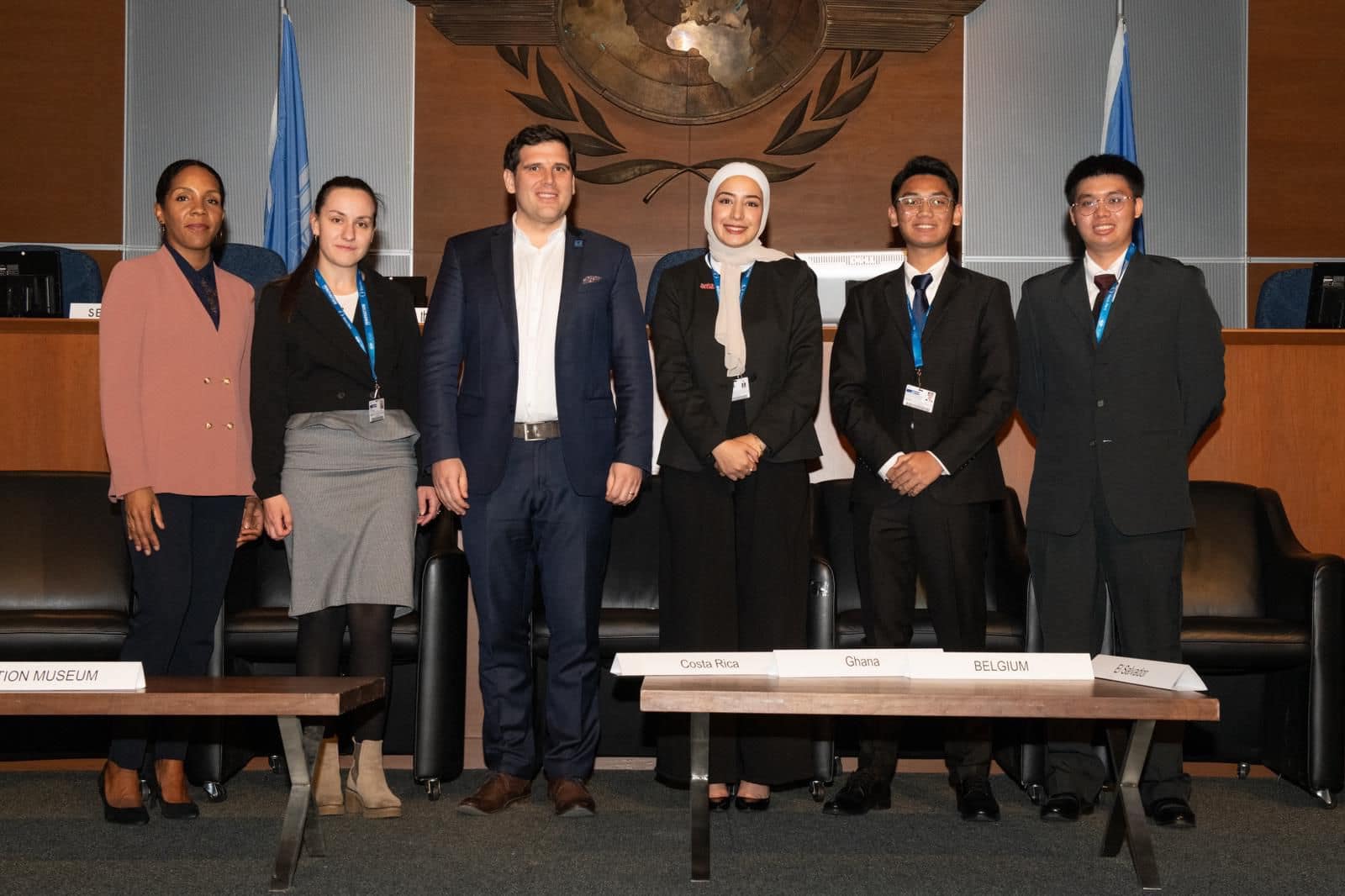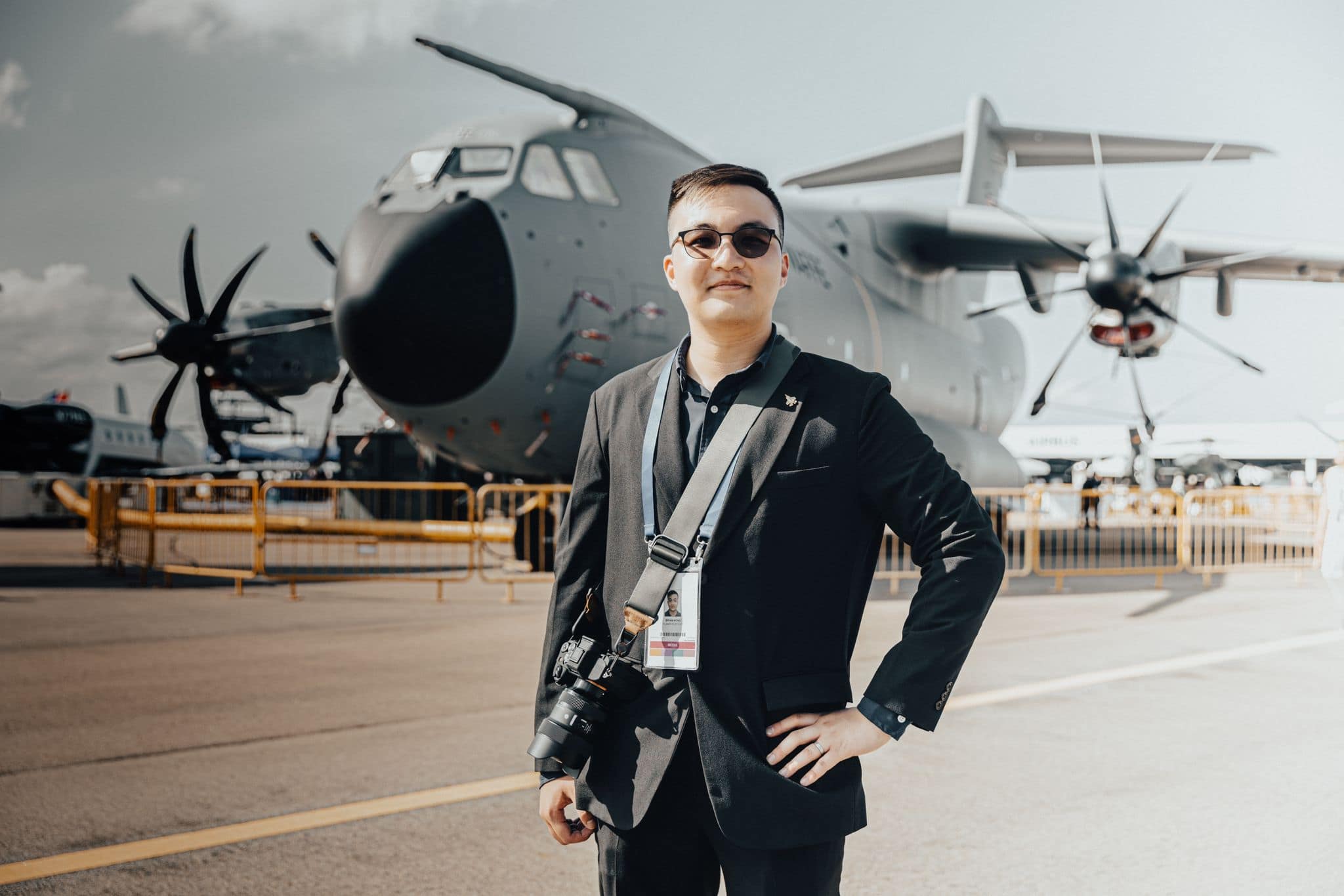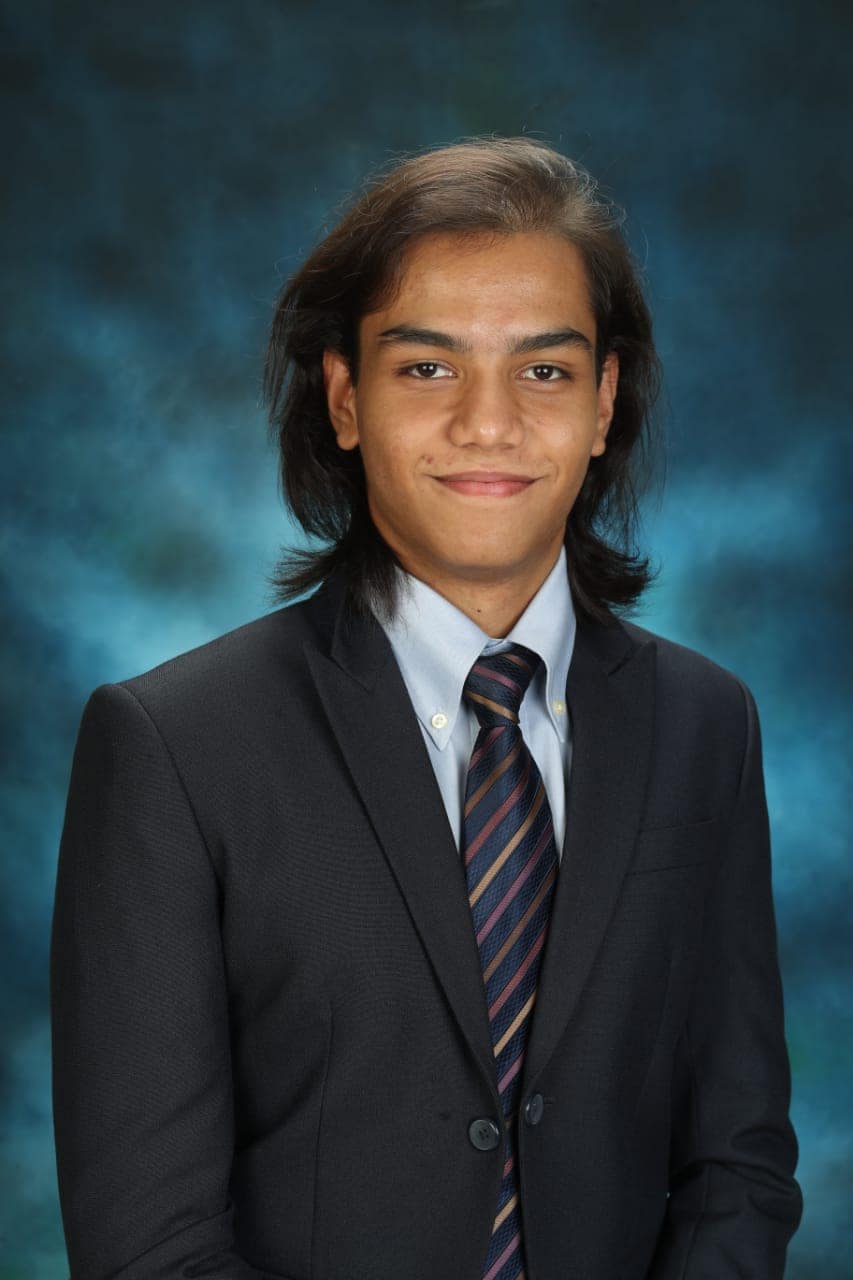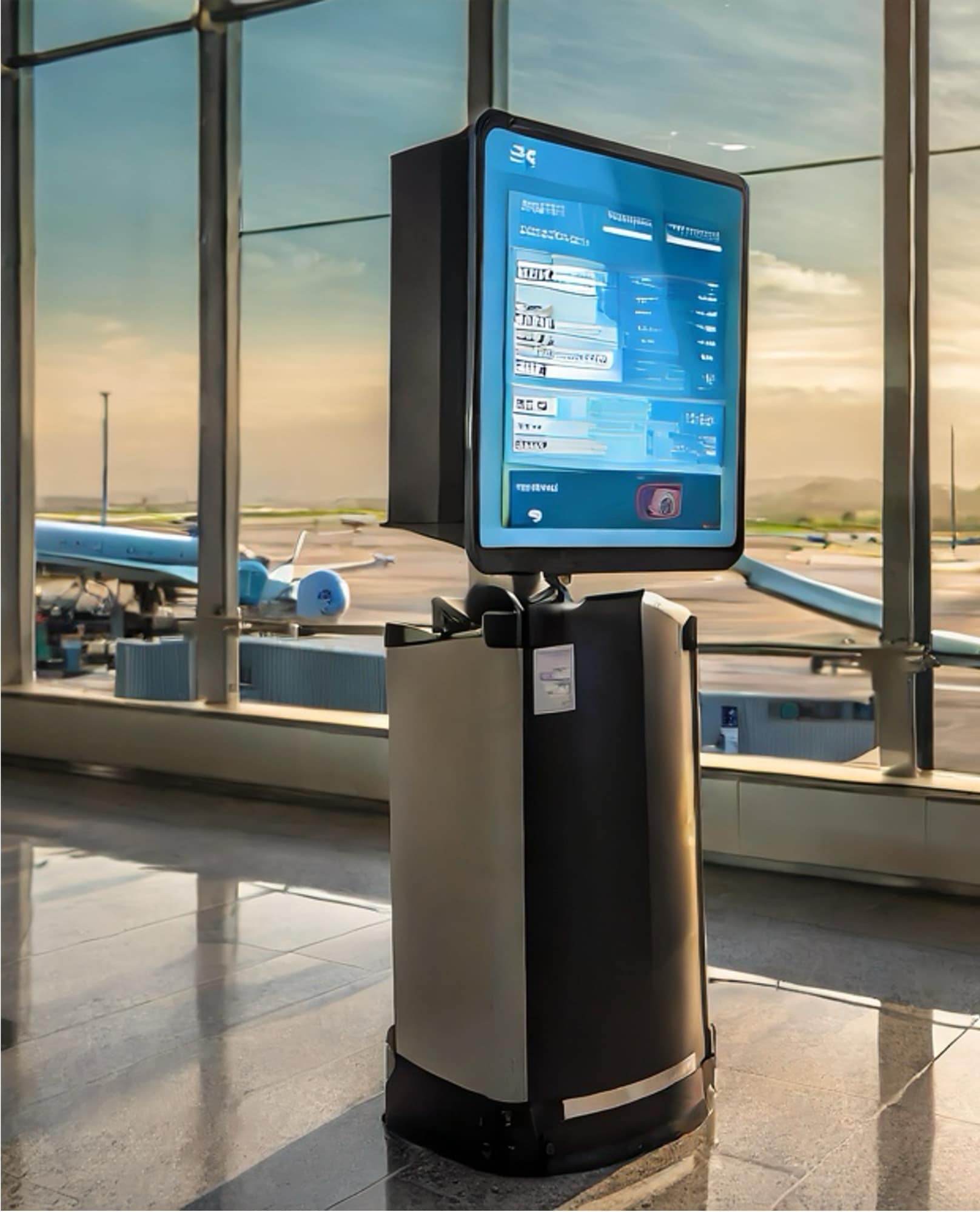An AI Idea Lands Embry-Riddle Team’s Project at the 2024 ICAO Innovation Fair

The digital future in aviation is almost unlimited, and a team of undergraduates from Embry-Riddle Aeronautical University’s Asia Campus got a chance to stake their claim on the cutting edge during the recent 2024 ICAO Innovation Fair in Montreal.
Among a handful of university contingents to earn their way into the event, the team designed a digital navigation device to support passengers making their way through Singapore’s Changi Airport.

A.I.I.C.E. team leader Bryan Wong, an Aviation Business Administration major.
Using AI as a Personal Guide for Passengers
Christened the AI Integrated Customer Experience (or A.I.I.C.E), it’s aimed at the need for airports to optimize staff and resources to help manage the growing passenger flow.
“It was initially just coursework that spanned approximately two weeks,” said Aviation Business Administration major Bryan Wong, the team’s leader. “However, based on the rapid development of AI in 2023, we looked to go above and beyond to try and make it a practical solution as opposed to a faint idea.”
The team also included B.S. in Aeronautics majors Ruhaan Das and Eugene Ng, who served as the trio’s representative in Canada on a trip fully sponsored and supported by the Civil Aviation Authority of Singapore.
The three undergraduates were thrilled to have their work presented during the “My Thesis in 180 Seconds” segment at the Innovation Fair, which this year featured the theme “Digital Aviation: The Future is Now” and welcomed start-ups, academics and research centers to share experience regarding the development of innovative digital technologies or services for aviation. The Embry-Riddle team won the right for Eugene to present its idea in Montreal after they were chosen as finalists in the ICAO Innovation Competition.
“It was an honor to be selected to be part of the event as it demonstrated the importance of our project and its feasibility in implementation,” Eugene said.

Ruhaan Das, a B.S. in Aeronautics major and A.I.I.C.E. team member.
Making Connections to Reduce Congestion
A.I.I.C.E aims to support airports in the push for higher degrees of automation to improve the passenger experience, and it features a kiosk with directional speakers that employ neurotechnology to provide passengers with clear and precise instructions while cutting down on unwanted noise levels.
The artificial intelligence baked into the system will enable it to communicate with all types of passengers in their native languages, providing a hassle-free experience.
It could be used at check-in, retail shops or restaurants, but it is primarily used to help address the slowdowns at security screening points.
A.I.I.C.E could ease the bottlenecks by providing “guidance and assurance to passengers on security procedures,” the team said.
“We are incredibly proud of the team behind Project A.I.I.C.E and to see their proposal selected as a finalist in the ICAO Innovation Fair,” said Matthew Flaherty, Vice Chancellor & Head of Asia. “This participation falls under our strategic initiative in research and innovation that aims to develop solutions to real-world problems facing the aviation industry while creating opportunities for students to showcase their talents and creativity.”
Instructor Kim Chua, Director of Student Success at the Asia Campus, was excited to see Embry-Riddle undergraduates making an impact in such a significant industry event.
“As project supervisor and mentor, I am extremely proud to have the opportunity to support such an outstanding and creative group of students,” she said. “We are committed to ensuring that our students continue to apply and translate their learning into real-world contexts so that we can better serve our communities and industry.”

An illustration depicts what an A.I.I.C.E. kiosk could look like at Changi Airport.
Now that the team has successfully presented its plan to industry leaders, they are looking for AI subject matter experts from within the Embry-Riddle community to turn the idea into a working prototype.
Anyone who would like to help Bryan, Ruhaan and Eugene further develop A.I.I.C.E. can reach out to them at the Asia Campus.
Real-World Opportunities for Undergraduates
Having the chance to design an interactive system to help passengers and then having that design presented in front of the world’s top airline executives is another example of the opportunities for networking and practical experience that only a globally respected university like Embry-Riddle can offer undergraduate students.
“Embry-Riddle puts a strong emphasis on industry-focused experience, taking education from the classroom to the real world,” Ruhaan said. “This allows every student to be well prepared to make a substantial difference in the industry.”
How can we prepare you for success? Apply at Embry-Riddle today and find out.

 Jon O'Neill
Jon O'Neill